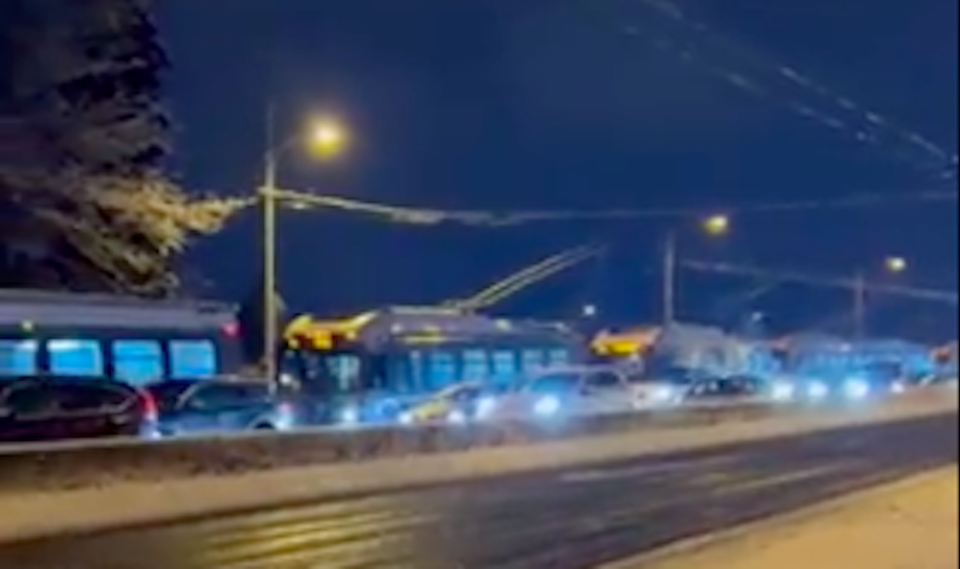Metro Vancouver commuters are being advised to give themselves extra travel time or make alternative plans as some bus and SkyTrain services may be delayed or cancelled due to inclement winter weather.
Environment Canada issued a winter storm warning on Wednesday (Jan. 5) morning that includes up to 10 to 20 cm of snow, with up to 30 cm possible in the Howe Sound and Fraser Valley.
"Consider postponing non-essential travel until conditions improve. Rapidly accumulating snow could make travel difficult over some locations. Surfaces such as highways, roads, walkways and parking lots will become icy, slippery and hazardous," reads the warning.
The B.C. government is also urging locals to prepare for winter conditions, which will include cold temperatures, power outages and slick streets.
Drivers are reminded to plan ahead and drive according to weather and road conditions if they must travel during this storm. If you must travel, reduce your speed and use caution when you encounter poor weather or limited visibility.
TransLink states that commuters should expect delays and service disruptions on transit routes, too.
The transportation agency will salt and salt its stations but advises commuters to use caution and anticipate extra crowding on some bus routes and SkyTrain platforms.
As of 3 p.m., there are 216 bus alerts posted on TransLink's Alerts and Advisories page. Additionally, there are three SkyTrain alerts, two WestCoast Express alerts, one SeaBus alert, one HandyDart alert, and 10 station access alerts.
Locals took to social media to share images and videos of TransLink buses and cars that were struggling to make it up hills in the snow and ice on Tuesday.
Commercial drivers who travel outside the Greater Vancouver area in the winter are required to carry chains, or other acceptable traction devices, and comply with all signs and regulations.
Winter weather tips
A little preparation can go a long way to keeping people safe during stormy, wintry conditions. Here are some tips to keep safe this winter:
* Wear your winter gear: Always wear clothing appropriate for the weather. Dressing in layers, with a wind- and water-resistant outer layer, provides flexibility for changing conditions. To avoid frostbite, cover as much exposed skin as possible by wearing hats, scarves and gloves. Try to stay dry and change out of wet clothing as soon as possible.
* Be prepared for power outages: Severe weather can cause power outages. Be prepared for up to one week by developing a household emergency plan and putting together an emergency kit. If you encounter a downed or damaged power line, assume it is live and a danger. Stay back at least 10 metres (the length of a bus) and call 911 immediately to report.
* Emergency shelters available: People in need of a warm, safe place to stay during the cold and wet winter months have access to additional emergency shelter spaces. All shelters, including extreme weather response shelters, are open throughout B.C. This winter, the Province is providing more than 1,900 temporary shelter spaces and nearly 360 extreme-weather response shelter spaces to ensure people experiencing homelessness have a warm place to sleep and get out of the cold and rain. These emergency shelters supplement more than 2,250 permanent, year-round shelter spaces. The extreme weather response shelters are available overnight when a community issues an extreme weather alert.
* Be prepared on the road: People should bring warm clothing that does not restrict movement when driving and ensure their vehicles are equipped with a full tank of fuel, a windshield scraper and snow brush, food and water, a first-aid kit and other emergency supplies. If stuck or stranded, people should stay in their vehicles and call 911 for roadside assistance.
With files from Lindsay William-Ross.



